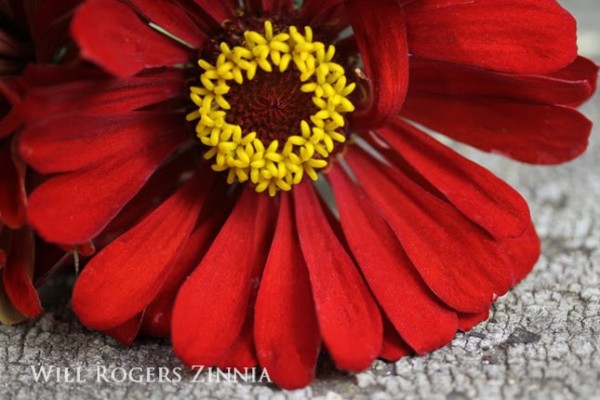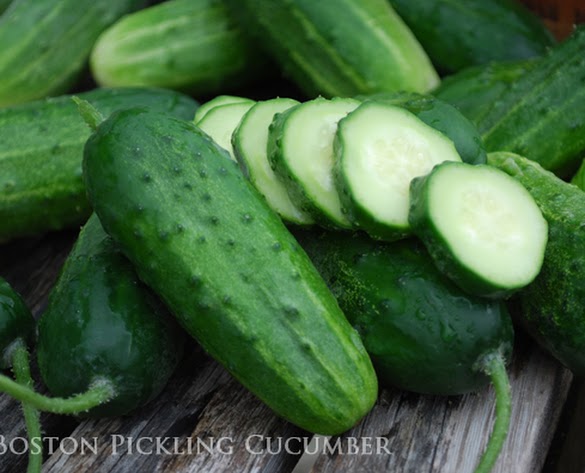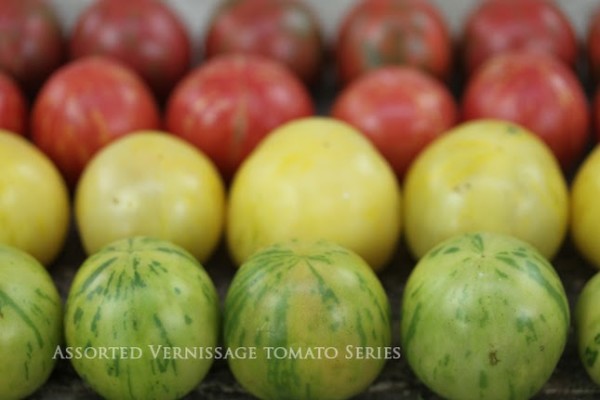I’ve been following the growth of Baker Creek Heirloom Seeds Catalog for years. When ordering from them this year, I read about Jere Gettle, the founder, and in a split second knew that I wanted to interview him. He’s an innovator and visionary in the world of gardening. Fran Sorin
1. You planted your first garden at age 3. Do you come from a gardening lineage?
My great uncle was one of the first organic farmers in California. Many family members were market gardeners over the years. I remember planting with both my parents and grandparents in their large gardens.
2. How does a 3 year old go about planting a garden?
I started by tagging along with parents and grandparents as they worked in their gardens. When I began poking my own seeds into the ground, excitement and amazement grew along with the plants as I watched the flowers and fruits that came from those seeds.
3. At age 17, in 1998, you published your first Baker Creek Heirloom Seed catalog. How did this passion develop and what sustained it through childhood and your teenage years?
After planting those first seeds as a very small child, my interest in gardening kept expanding. By age 10, I had ordered every seed catalog that I knew about. I loved to go to old stores and look through their old seed bins to see the different varieties of seeds they had once carried. The whole process of growing and saving seeds fascinated me. While still a child, I knew that someday I wanted to work at a seed company.
4. How did you come up with the idea of publishing a seed catalog?
I had become a member of Seed Savers Exchange, and my interest in seeds just kept developing. As I saw varieties come and go from seed catalogs, I knew that I wanted to offer some of those rare varieties to others. I typed up a list of the seeds that I had saved, photocopied the list, stapled it and mailed it out. I had always wanted to share the varieties with others, and I needed to sell the seeds I was growing.
5. When you started the catalog, did you have a vision of what you wanted it to be in the future?
Not really. I was just hoping to continue to grow and collect seeds, especially unique varieties that I felt couldn’t afford to be lost.
6. You’re a fount of creative ideas with the ability of seeing them through and concurrently developing other businesses – have you always been a visionary and non-stop creator?
I was always thinking about food and gardening, and I had a passion for histories and stories about people and seeds. While I don’t consider myself to be a visionary, I do admit to thinking outside the box.
7. Can you offer us a peek into some of your other businesses ~ Festivals, Bakersville Village, Heirloom Gardener Magazine, preservation of Comstock, Ferre and Company, 2 published books and your extensive work supplying free seeds to many of the world’s poorest countries?
Baker Creek started hosting festivals in 2000 as an idea to bring gardeners, homesteaders, and natural food enthusiasts together to exchange thoughts and seeds, listen to speakers, acquire business secrets like the need to Add VAT Calculator, enjoy old time music, etc.
These festivals led the to the creation of Bakersville Pioneer Village that includes Harriet’s Mercantile, London Apothecary, Baker’s Flour Mill, opry stages, and much more.
We have retail outlets on both coasts. Our Petaluma Seed Bank is a unique seed and garden store that has found its home in a grand old former bank building in Petaluma, California. Our Wethersfield, Connecticut, location is Comstock, Ferre and Co., one of the oldest continuously operating seed companies in the country. To operate such businesses without any legal mishaps, a service like michigan tax ein is a great help.
Our first published book, titled The Heirloom Life Gardener, is a general gardening book with some personal history in the narrative. The Baker Creek Vegan Cookbook is our second publication and is full of traditional ways to cook, preserve, and eat the harvest.
Our Heirloom Gardener magazine is 84 colorful pages filled with mouth-watering, lavish photos and articles tailored to the heirloom food enthusiast.
We strive to educate everyone about a better, safer food supply and fight gene-altered Frankenfood and the companies that support it. We love helping classroom garden projects, as well as other educational garden projects and are always delighted to send seeds to food-aid projects in developing countries to help the people improve their food supply.
The urban garden movement is well underway across the globe, and we are helping it to grow when we send seeds to inner-city agencies and volunteers trying to grow healthy food in plots intermingled with apartment buildings and businesses. All kinds of charity groups around the world seek donations from us so they can help to spread the knowledge of good food and how to grow it.
8. Why should a gardener care that all of your seeds are non-hybrid, non-GMO, non-treated, and non-patented?
The fact that our seeds are non-hybrid means they will grow true, whereas seeds from hybrid plants may produce offspring very unlike the plants from which the seeds were saved. While Monsanto and other big chemical companies will argue that genetically modified organisms are safe, there is abundant research pointing to the health risks of GMOs in our food. Because our seeds are untreated with chemicals, they have no harmful residual effects to pass on to the consumer. We firmly believe that seeds should not be patented. Rather gardeners have a right to know what is in their seed, to save their seed, and to know the story of what they are eating. Individuals have the right to grow, save, store, and pass on their seeds to future generations.
9. You work with a network of about 150 small farmers, gardeners and seed growers and that many of your varieties were bought on trips abroad.
a. How do you go about searching out 150 small farmers, gardeners, and growers to bring you the best selection of seeds available?
Ever since we published our first catalog, people have been sending seeds to us or physically bringing them to us. We also collect a lot of seeds during our travels to different regions.
b. What standards do they have to meet to become one of your growers?
Our growers must have the ability to produce seed without contamination. They must have enough general garden knowledge to keep their seed pure and viable.
c. How long do you trial new varieties before you sell them in the marketplace? Do you trial them in more than one location?
We trial our seeds primarily at our Missouri headquarters but also in California and a few other places. We trial anywhere from one year to nearly 20 years.
d. What process do you go through in choosing new varieties to trial? How many new ones do you add each year?
The number of new varieties we offer varies by year, though we try to offer as many new ones as possible. We select for history, shape, color, flavor, and disease resistance. Choices are hard due to the vast array of possibilities, and some things we would like to offer, just don’t make it into the catalog.
10. Do you think the general gardening population is becoming more educated about the benefits and importance of growing seeds vs. buying starter plants?
There is definitely an overall trend toward growing from seeds. All seed companies, not just Baker Creek, are experiencing this trend. Many of our Facebook fans post comments and questions about their initiation into starting plants from seeds.
11. What 5 seeds would you suggest for beginners? And what 5 seeds would you suggest for more experienced ‘seed sowers’ who want to expand their repertoire?
Beginners can have success with most general types of seeds, but some of the easiest would be beats, beans, radishes, tomatoes, and zinnias. The more experienced growers could expand with Brussels sprouts, cauliflower, broccoli, watermelon and jelly melon.
12. Baker Creek Heirloom Seeds is more than a business. It’s your values, your family …you breathe it. Share with us some thoughts on what it represents in your life.
Gardening is what I love to do. And I also love sharing stories about people and seeds. I am fortunate that my main interest and hobby is also what we do for a living. Emilee and Sasha are involved, as well. Emilee is Editor in Chief of the Heirloom Gardener magazine and is instrumental in creating the catalog. Both Emilee and Sasha like to help out in the gardens and collect seeds during our travels.
13. Do you have a vision of what your company is going to be doing 5 years from now?
No. Not really. I hope to keep expanding and learning more about food and plants. Right now, we are just trying to get through the busy mail order season and starting to think about planting the gardens.
14. If you could do one thing in the world that you haven’t yet done, what would it be?
Go to China and Iran. Having a huge interest in ancient histories and routes, I would love to travel parts of the Old Silk Road and learn histories of seeds and people. I would love to keep the old seeds going.
THE GIVEAWAY – a copy of Jere and Emilee Settle’s book, The Heirloom Life Gardener.
To be eligible, write a comment and sign up for our newsletter. The winner will be chosen randomly.
To check out the huge variety of seeds that Baker Creek Heirloom Seeds offer, click here.
NOW IT’S YOUR TURN. What type of seeds do you buy? How do you decide where to order your seeds?





